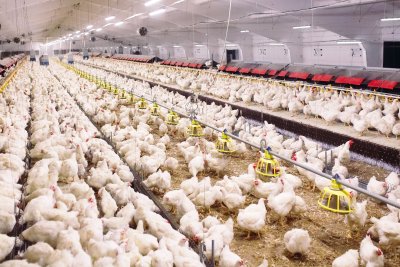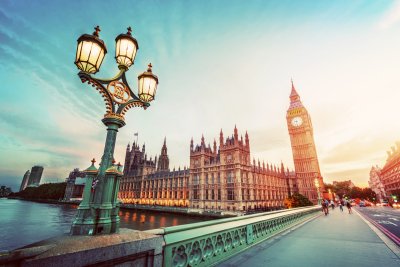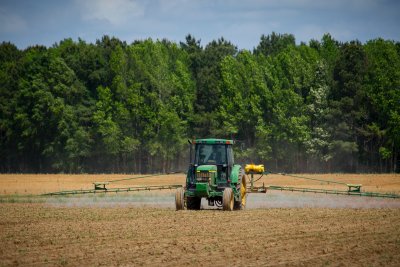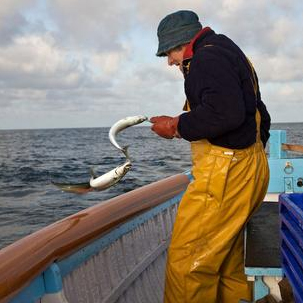

Essential elements of sustainable UK fisheries management
Briefing for parliamentarians and policy makers, from the Greener UK coalition of environmental organisations, working with Sustain, to support sustainable fisheries management post-Brexit.
Briefing for parliamentarians and policy makers December 2017
Summary
The development of new domestic fisheries legislation is an opportunity to establish the UK and devolved nations as world leaders in sustainable fisheries management, an aspiration behind which all stakeholders, including the fisheries sector, are united.1 This would contribute to the UK government’s goal to leave the natural environment in a better state, and should fit within the context of an ambitious 25 year plan for the environment.2 Future fisheries legislation (whether developed by the UK or devolved administrations) should fit within a framework of a wider marine policy that aims for recovered and biodiverse seas. Thriving fish stocks are critical for a profitable and prosperous industry and, ultimately, fisheries are a common public resource and should be managed for the public benefit. 3
The nine essential elements listed in this briefing should deliver five primary outcomes:
- An ecosystem based approach: managing fish as an integral part of healthy ocean ecosystems, and taking account of the cumulative impact of human activities on the environment.
- All fish stocks restored and maintained above biomass levels capable of producing the maximum sustainable yield.
- Fisheries management decisions based on the best available science.
- Fully transparent and accountable fisheries where catches, both target and non-target, are fully documented, infringements are properly enforced and fisheries are effectively controlled.
- Fishing opportunities are allocated on the basis of transparent and objective environmental, social and economic criteria, in a way that incentivises the most sustainable fishing.
Governance of marine environmental matters in the UK is largely devolved, but many marine and fisheries management issues occur across borders. To date, EU environmental law has provided a common framework, requiring similar approaches across the UK’s jurisdictions. It is unclear how the proposed Withdrawal Bill or Fisheries Bill will affect the current devolution settlements. It will, however, be important for the UK and devolved governments to work collaboratively to maintain high standards of environmental protection and effectively address cross border environmental issues, in line with domestic and international obligations.
Nine essential elements for sustainable fisheries
The following elements should be included in the future UK and devolved fisheries management regime to produce a world leading system across the UK. These elements should be addressed in primary rather than secondary legislation. Fisheries management should not be left subject to Common Fisheries Policy rules that are frozen in time or changed through delegated legislation, with limited parliamentary scrutiny, via the Withdrawal Bill process.
The nine elements, discussed in more detail below, are:
- Sustainability at the heart
- Clear objectives and principles
- High environmental standards apply to all vessels in UK waters and for UK vessels elsewhere
- Scientific and transparent process for setting total allowable catch and quotas
- International and intra-UK co-operation to manage shared stocks
- Eliminating discards and bycatch
- Accountability and enforcement
- Protecting and conserving the marine environment
- Inclusive and robust governance
1. Sustainability at the heart
The statutory purpose of the legislation should be to maintain the potential of marine resources to meet the needs of current and future generations. Doing this requires avoiding or mitigating any adverse effects of fishing on the marine environment and ensuring that fisheries activities are managed in a way that is consistent with restoring, recovering and maintaining a healthy marine environment. This overarching statutory aim should be clear and provide a standard against which to measure the outcomes of the future Act.
2. Clear objectives and principles
Primary fisheries legislation should include overarching objectives and principles, to guide public authorities and decision makers in interpreting and implementing the Fisheries Act(s) and any future secondary legislation.4 Clear objectives will be particularly important if legislation confers broad powers upon the government to make statutory instruments for fisheries management. Principles should include those promoting good governance, such as transparency and public participation in decision making, and key principles of environmental protection currently enshrined in EU treaties, including the precautionary principle. 5
Objectives:
- An ecosystem based approach to fisheries management in line with UK Marine Strategy Regulations 2010, ensuring that negative impacts of fishing activities on the marine ecosystem, including discards, are minimised and where possible eliminated.6
- Long term sustainability and a precautionary approach to fisheries management.
- Fishing limits must be set in line with the best available scientific advice to ensure that stocks are restored and maintained at levels above maximum sustainable yield (or the best proxy) and to ensure that, by 2020, fishing mortality is below levels that will deliver maximum sustainable yield.7
- Consistency with international law obligations and international best practice.8 – Consistency with other environmental and marine planning legislation, including: the objective of achieving good environmental status by 2020 (and maintaining it beyond);9 the delivery of a well-managed network of ecologically coherent Marine Protected Areas; and other existing legislation.10
3. High environmental standards apply to all in UK waters and for UK vessels elsewhere
Regaining control of the UK Exclusive Economic Zone (EEZ) means that the UK can set high environmental standards for all fishing activities. Consistent with international law, all foreign vessels fishing within UK waters should be required to comply with the rules set down in UK fisheries and environmental legislation, regulation and policies.11 The rules should apply to UK vessels at all times, whether they are fishing within or outside UK waters.
4. Scientific and transparent process for setting total allowable catch and quotas
The total allowable catches for fish stocks within the UK EEZ must be set according to the best available scientific advice from established and internationally recognised scientific institutions, so that fish stocks are maintained above levels capable of producing the maximum sustainable yield. Public authorities should promote stewardship of fish stocks and the wider marine environment by providing incentives for fishing activities that will have a reduced environmental impact. Transparent and objective criteria based upon environmental, social and economic factors should be used when allocating quota. Authorities should also be empowered to adopt adaptive management strategies that take into account changes to fish stock distribution and abundance, such as those caused as a result of climate related impacts on fisheries and the wider marine environment.
5. International and intra-UK co-operation to manage shared stocks
Where shared stocks are exploited by other coastal states as well as the UK, it is imperative that the government engages with the EU and other states to negotiate joint arrangements which ensure that shared stocks are managed in a sustainable manner according to the best available science. In addition, the relevant UK fisheries administrations should agree joint management approaches to ensure those shared stocks are managed in a sustainable way within UK waters.
6. Eliminating discards and bycatch12
All catches of species which are subject to catch limits should be recorded on board and counted against allocated quota. All vessels, no matter the size, must be subject to a Vessel Monitoring System. In addition, an effective Remote Electronic Monitoring system, using cameras and sensors, should be required on all vessels over ten metres in length;13 and where particular issues have been identified that require monitoring, such as a heightened risk of cetacean bycatch.14 To reduce unwanted catches in the first instance, regulatory bodies and decision makers should be empowered to incentivise more selective fishing methods and gear types.
Bycatch of non-target species, particularly endangered, threatened and protected species (including seabirds, marine mammals and turtles) must be recorded and minimised, (ie ultimately reduced to zero). There should be a requirement for regulatory bodies to develop a bycatch strategy, which will include the use of effective mitigation measures, a robust data collection and annual reporting protocol, and a monitoring regime including the use of strandings data and Remote Electronic Monitoring with cameras where higher levels of footage are reviewed on high risk vessels.
7. Accountability and enforcement
UK and devolved fisheries legislation should provide an overarching framework that promotes and empowers strong monitoring and enforcement action. Infringements must be dealt with via effective, proportionate and dissuasive sanctions. In Scotland, for example, the EU Court of Auditors recently found that the application of low level fines and frequent favouring of ‘soft measures’, like warning letters, may have contributed to a high recurrence rate for fisheries offences.15 The UK and devolved administrations need to make sure that they treat infringements seriously. The points system for serious infringements should also be retained and implemented effectively after the UK leaves the EU, with associated ramifications such as loss of a fishing licence where certain numbers of points are accrued or where repeat offences are committed.
8. Protecting and conserving the marine environment
Fishing vessels must be required to comply with any applicable marine protected area (MPA) management regime or conservation measures, such as those established under the Marine and Coastal Access Act 2009. In protected areas, fishing activities should be able to be restricted or prohibited to contribute to the conservation of aquatic life and marine ecosystems. Competent authorities must also be empowered to introduce temporal or spatial fisheries management measures and other technical measures outside of MPAs, such as temporary closures or gear specifications in certain areas, where necessary, to protect biologically sensitive species and habitats. UK vessels fishing outside UK waters should also be required to comply with any applicable marine management, spatial planning or conservation regimes that exist for the area where fishing activity is taking place.
9. Inclusive and robust governance
Governance of fisheries management should be inclusive, democratic and robust. It should guarantee representation of the small scale fleet, environmental nongovernmental organisations and other relevant stakeholders on governing bodies, ensuring that those with an interest in creating and maintaining effective management plans for their local area or for the offshore area are involved in decision making.
Further, there should be robust mechanisms for assessing, facilitating and strengthening the implementation of, and compliance with, obligations arising under fisheries legislation. Environmental protection is dependent on robust governance, and, under the Common Fisheries Policy, a broad range of functions are performed by EU institutions, including regulation, monitoring, oversight, accountability and enforcement, helping to ensure effective implementation of environmental legislation. An independent body or bodies should be established, or constituted from an existing body, to provide scrutiny and evaluation and make recommendations for effective implementation of, and compliance with, fisheries
legislation. This issue arises as part of the broader need to fill the environmental governance gap within the UK.16
Regular reporting to the parliaments of the UK on the implementation of UK fisheries legislation and the state of UK fish stocks should be required. Reporting must be made public and tied into requirements to take action to improve implementation and remedy any noncompliance.
Enabling conditions
In the future it will be essential to ensure a thriving internal and external market for UK seafood. With growing demand for UK caught fish, promoting and encouraging a market for sustainably caught fish and shellfish will contribute to the sustainable management of UK fisheries.
All public funding for fisheries should support delivery of a sustainable management regime, including financing for science, filling the gaps in stock assessment, data collection and fisheries monitoring, effective control and enforcement, and support for a marketing strategy for sustainable seafood.
The government should also establish a cost recovery system whereby the fishing industry contributes to the cost of fisheries management and conservation activities via a levy (as is the case in other sectors and countries). This is part of operating a transparent, accountable industry that has a responsibility to contribute to the costs of science, monitoring and management.
Conclusion
These nine essential elements are necessary for inclusion in primary legislation for fisheries management in the UK and across the devolved nations. Enshrining these provisions should be a priority to ensure that the overarching direction for fisheries management will secure and rebuild healthy fish stocks and support a healthy marine environment. However, these essential elements are just the beginning, further measures will also be necessary to include in the management regime, to deliver the aspiration for world leading fisheries management.
For more information on this briefing, please contact:
- Dr Lyndsey Dodds, head of marine policy, WWF e: ldodds@wwf.org.uk t: 0131 659 9022
- Amy Hill, UK fisheries lawyer, ClientEarth e: ahill@clientearth.org t: 0303 050 5966
Sustain is working with the Greener UK alliance of environmental organisations to help secure a healthy, fair, humane and sustainable food system following the UK's departure from the EU. Download the briefing from Greener UK at: http://greeneruk.org/resources/sustainable_fisheries_management.pdf
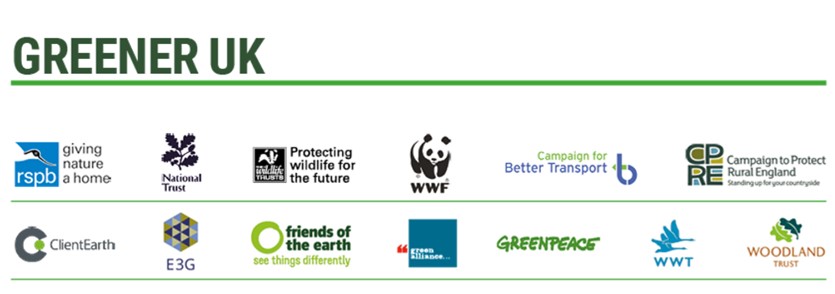
Good Food Trade Campaign: Campaigning for good trade that benefits people and the planet at home and overseas.
Sustain
The Green House
244-254 Cambridge Heath Road
London E2 9DA
020 3559 6777
sustain@sustainweb.org
Sustain advocates food and agriculture policies and practices that enhance the health and welfare of people and animals, improve the working and living environment, promote equity and enrich society and culture.
© Sustain 2026
Registered charity (no. 1018643)
Data privacy & cookies
Icons by Icons8

